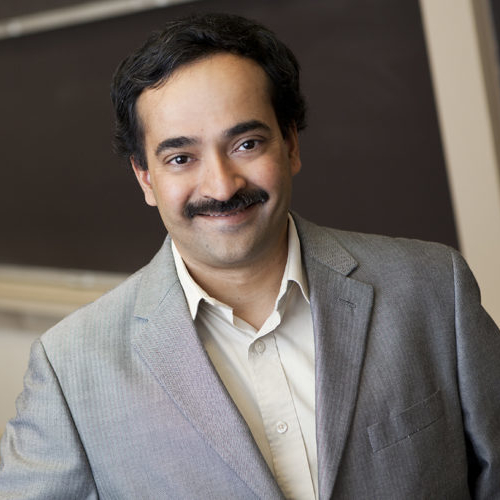Olin study shows most consumers visit multiple grocers for different products
- February 5, 2018
- By Chuck Finder
- 3 minute read

Shoppers aren’t as loyal to their grocery stores as conventional wisdom would have you believe, according to new research by Olin’s Seethu Seetharaman.
If Americans fulfilled their java urges the same way they carefully shopped for groceries, they would visit five to seven various chain coffee shops regularly—for a blend of different categories.
In fact, it turns out that grocery categories such as dessert toppings, motor oil, candles and refrigerated ethnic foods were some of the leading products that lure customers to separate stores.
In the first test of detailed consumer-buying habits by categories at more than one chain store selling groceries, a team of business school researchers led by Washington University in St. Louis found that shoppers weren’t monogamist or bigamist but rather polygamist in their choice of outlets.
The vast majority—a whopping 83 percent—regularly visited between four and nine chain stores within a year’s time to purchase groceries. Of 1,321 households studied among this rich dataset, only 12 stayed loyal to just one store. More than half, at 51.1 percent, went to the average of five to seven different stores. Eighty-eight households, or six of every 100, went to 10 or more.
So much for store loyalty.
Shattering conventional wisdom on grocery loyalty
Using tracked data from a vendor utilizing a swipe card akin to a loyalty card, the researchers parsed more than $1 million worth of shopping transactions over 53 weeks involving 248 types of products sold at 14 retail chain stores in a large metropolitan market. The study, “Polygamous Store Loyalties: An Empirical Investigation,” was published last month in the Journal of Retailing.

“Store loyalty was pretty much a given in grocery retail,” said senior author Seethu Seetharaman, director of the Center of Customer Analytics and Big Data and the W. Patrick McGinnis Professor of Marketing at Olin Business School. “When people do their shopping, it’s the store close to where they live—location, location, location, like the real-estate mantra.
“Then there is a group of choosy consumers who stop at many stores, shopping for bargains or certain brands or products,” he said. “They’ve been called ‘cherry pickers.’” Often, those folks were associated with coupon shoppers.
“That made us do a deeper dive, and we found that people aren’t as store loyal as we thought,” Seetharaman said. “Clearly, people are polygamous. The majority of people are shopping at six grocery stores.”
Consumers tend to shop multiple stores for multiple reasons. In fact, the data showed little loyalty to a single store or handful of stores, but more so to types of products found in a store. Consumers shopped various stories for specific product categories: frozen treats at one grocer, meat and poultry at another, and so on. The researchers called this “intrinsic store-category attractiveness.”
Seetharaman was joined in this study by one of his former graduate students, Qin Zhang, assistant professor of business at Pacific Lutheran University, and one of Zhang’s former graduate students, Manish Gangwar, assistant professor of marketing at the Indian School of Business. They specified and estimated a statistical model of how consumers fractured their shopping basket and shared their wallet across stores.
Media inquiries
For assistance with media inquiries and to find faculty experts, please contact Washington University Marketing & Communications.
Monday–Friday, 8:30 to 5 p.m.
Sara Savat
Senior News Director, Business and Social Sciences
